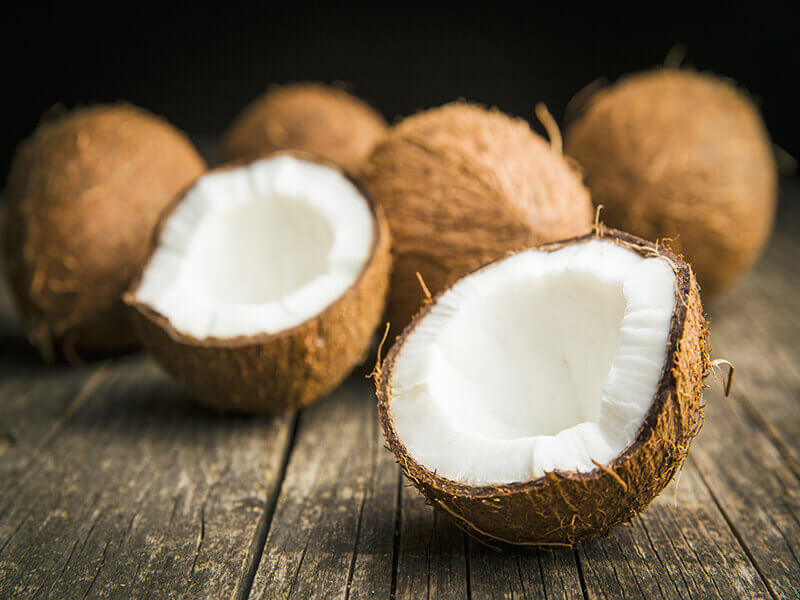India is the world’s Coconut Central. In 2022, it produced nearly 20 billion nuts or roughly a third of the world’s coconuts.
 Aarthi Ramachandran
Aarthi Ramachandran  Anisha Jain
Anisha Jain 
India is the world’s Coconut Central. In 2022, it produced nearly 20 billion nuts or roughly a third of the world’s coconuts.
 Aarthi Ramachandran
Aarthi Ramachandran  Anisha Jain
Anisha Jain
If there is a lesson every primary school child in India is taught, it is that the tall-standing coconut palm found in abundance in India’s coastal regions is a gift of nature like none other.
Often described as a ‘kalpavriksha’ or a wish-fulling tree, every part of it, from the fruit and leaves to the husk and shell of the nut, is capable of providing sustenance to humans in one way or another. And that is exactly what the coconut has been doing for thousands of years in India.
It is no wonder then that the coconut occupies a central place in Indian culture, especially in Hinduism where many rituals and poojas are incomplete without the presence of the dried coconut, whole or broken.
But perhaps just as important is its place in India’s agri-economy.
Coconut growing and allied industries provide food and livelihood security to over 12 million Indians. To put it simply, India is the world’s Coconut Central. There is none to beat India when it comes to the production of coconuts. In 2021-2022, it produced a total of 19,247 millions nuts or roughly 31% of the world’s coconuts.

Its productivity too is among the highest in the world at 9,123 nuts per hectare, bettering both Indonesia and the Philippines, the two other top coconut growing countries. In India, three states, Karnataka, Tamil Nadu and Kerala, alone produce over 80 percent of the output.
Coconut is consumed in many forms. The tender, green coconut is much sought after for its refreshing and nutritious water and its sweet and soft flesh. The ripe coconut when grated and ground is the mainstay of cuisines from the South, especially Kerala where it is used widely in all kinds of preparations. Then there are various other forms in which the coconut finds its way into food such as coconut milk, desiccated coconut, coconut sugar, dried coconut or copra etc.
Other than its direct use in food, the coconut produced in India goes towards three major industries — copra production, coconut oil extraction and coir making. Coconut oil is extracted from copra and used in cooking as well as in cosmetics like soaps, shampoos and lotions.
Coconut husk is used for coir-making, which supports a large industry that makes various products such as mats, mattress, textiles, yarn and so on. Coconut shell is used in handicrafts and as a source of biofuel.
India also is also among the world’s top coconut exporters, sending out coconuts and other products derived from it to more than 140 countries. The export of Indian coconuts and coconut-related products is growing at a fast pace — exports grew at 41% over the previous year in 2021-22— earning India over Rs 3,236 crore.
The coconut true to its reputation will continue to remain a source of livelihood and sustenance to many in the years to come as well.